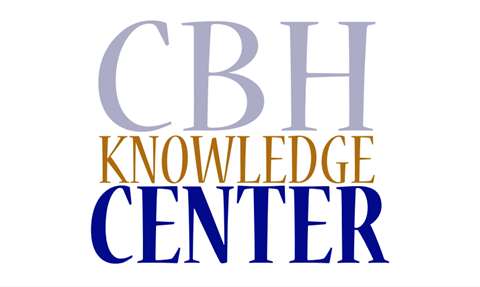IHT Supervisor Tool Kit
Supervisors are a key lever for improving quality of care and supporting the professional development of frontline staff, many of whom are new to the field with relatively little experience. The In-Home Therapy (IHT) Supervisor Toolkit includes guidance and tools for implementing three field-tested supervisory strategies: self-assessment, behavioral rehearsal, and field observation. These strategies are intended to assist supervisors with the implementation of the IHT Practice Profile. Scroll down for descriptions, resources and quotes from the field for each strategy.
To learn more about the toolkit development, watch the webinar, download the presentation slides or read the transcript.
Self-assessment - Supervision meetings that are guided by the IHT Practice Profile self-assessment are intended to be discussions about the quality and consistency of IHT staff’s practice across cases, within and across Practice Profile elements.
“This helped increase my awareness of my supervisees’ strengths and areas to target for development and served as a reflective tool for the TTS. ”
“It made me think about my practice in a way I would not have otherwise. It allowed me room to grow. ”
Behavioral rehearsal - Behavioral rehearsals are opportunities to practice skills using realistic scenarios while in a safe and supportive environment. Behavioral rehearsal differs from “role play” in that the focus is on rehearsal of skills rather than on emotional enactment or being “in role”.
Scenarios for use in behavioral rehearsals
“A majority of staff was dreading this strategy, but that seemed to flip. After the rehearsal, most of staff stated they enjoyed this strategy. It was great to see staff engaging and playing different roles. Some staff also commented on how this helped them release stress. ”
“This was not as anxiety-provoking as I thought it would be and was a great way to gain practical skills”
Field observation - A field observation is a direct observation by the Supervisor of IHT staff outside of the office in order to directly assess their practice skills. Direct observation ensures that supervisors are not relying solely on staff self-reports or case documentation to understand a staff’s practice skills and knowledge.
“I think it should be routine practice as it can help with burn out of teams so they don’t feel they are all alone with tough families and gives a way to reflect strengths and growth for team. ”
“It is helpful to have an outside perspective, particularly in a case where I was feeling stuck regarding prioritizing needs and moving in a positive direction with treatment.”


